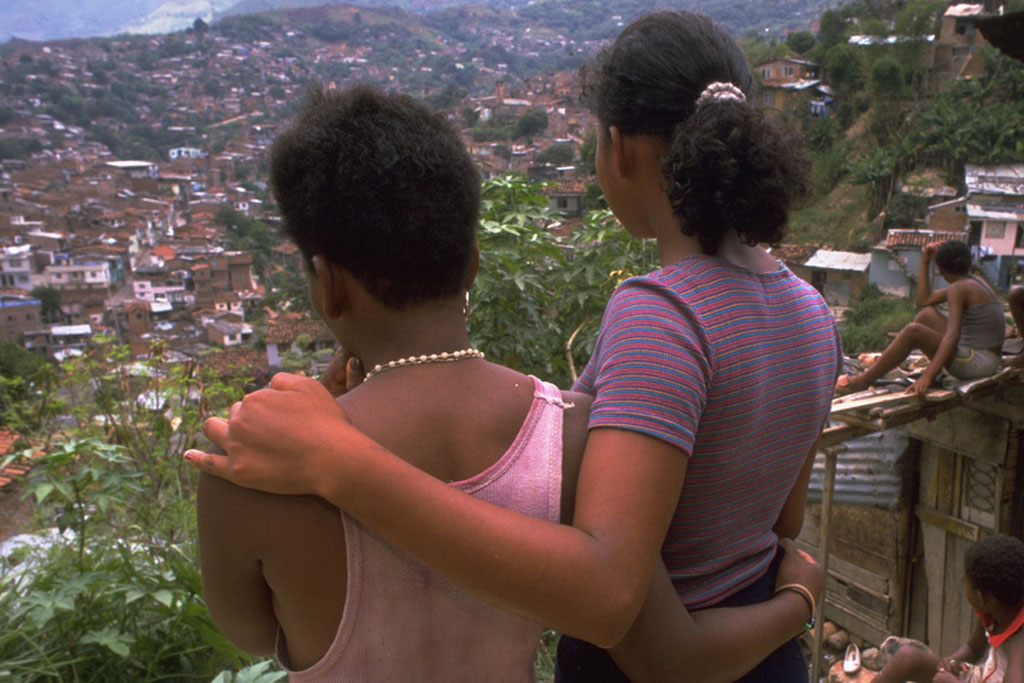
Criminal groups feed off the instability created by conflicts, and as links between wars, trafficking and migrant smuggling become more widely known, the United Nations is calling on the international community to act now to help and protect trafficking victims and to end this crime forever.
“Conflict is a breeding ground for criminal activity,” said Yury Fedotov, Executive Director of the UN Office on Drugs and Crime (UNODC). “People forced from their homes are falling prey to human traffickers as they try desperately to escape the violence.”
In Syria, for example, women and children there were less likely to be trafficked before 2011, according to the latest UNODC Global Report on Trafficking in Persons.
“Since the start of the Syrian crisis, however, an increasing number of countries in Europe, Asia and the Middle East have detected trafficking victims from this country,” Mr. Fedotov said.
“As evidence grows of conflict’s ability to nourish crime, the international community is increasingly recognizing the need to confront people’s vulnerability to trafficking during conflicts,” Mr. Fedotov said, recalling that in 2016, UN Security Council passed its first-ever resolution resolution on this issue, and last year’s New York Declaration calls for the need to vigorously combat human trafficking and migrant smuggling, as well as provide support and assistance under the UN Convention against Transnational Organized Crime.
His comments come on the World Day against Trafficking in Persons, which is being held this year under the theme of “Let’s act now to protect and assist trafficking victims.”
In line with this year’s theme, the UN is promoting the Trust Fund for trafficking victims, as well as the Blue Heart Campaign, which is being adopted across the world.
“Resources, well-supported advocacy, cooperation under international law, and action on the ground are the starting points for tackling this dehumanizing crime that shames everyone,” said Mr. Fedotov.
The Trust Fund facilitates effective, on-the-ground assistance and protection to victims of trafficking, through grants to specialized NGOs. Victims coming from areas of armed conflict and those identified among large refugee and migration flows are being prioritized.
Human trafficking is the acquisition of people by force, fraud or deception to exploit them, including for sex and forced labour. Smuggling of migrants is considered part of human trafficking.
Victims of trafficking have been targeted for sexual exploitation and pornography, organ removal, forced begging, forced criminality and other crimes.
Children among main targets of human traffickers
Every country in the world is affected by human trafficking, whether as a country of origin, transit, or destination for victims, UNODC has said.
Children make up almost one-third of all human trafficking victims worldwide, according to the UN agency’s latest report on trafficking. In addition, women and girls comprise 71 per cent of human trafficking victims.
Two UN human rights experts are also taking the opportunity provided by the World Day to warn that current systems designed to protect migrant children are failing, leaving many at risk of trafficking, sale and other forms of exploitation.
“So many children have died in conflict zones and along their perilous journey,” said Special Rapporteurs Maria Grazia Giammarinaro and Maud de Boer-Buquicchio, in a statement issued ahead of the Day.
The experts warned that all children fleeing conflict, especially those traveling alone, are vulnerable to abuse of different kinds: sexual and labour exploitation including as a consequence of trafficking, being sold and being coerced into marriage, in their homes, communities, society or in places where migrants and/or refugees reside – including reception centres, refugee camps or informal settlements at source, transit and destination countries.
The UN General Assembly will discuss trafficking in persons and smuggling of migrants in a special session in Vienna, Austria – where the UNODC is headquartered – in early September.
The event is part of preparations for a global compact on migration that is expected to be completed and adopted in 2018.
The World Day was established by the UN General Assembly in 2013 to “raise awareness of the situation of victims of human trafficking and for the promotion and protection of their rights.”
The UN International Labour Organization (ILO) estimates that 21 million people are victims of forced labour globally. This estimate also includes victims of human trafficking for labour and sexual exploitation.
While it is not known how many of these victims were trafficked, the estimate implies that currently, there are millions of trafficking in persons victims in the world.